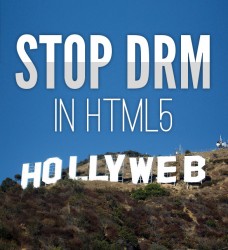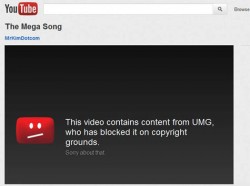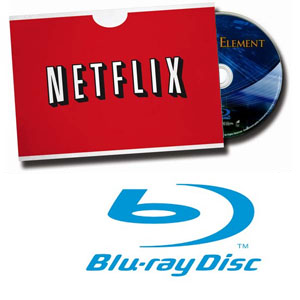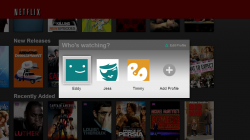A busy week for me, but not a busy week for news apparently. Just your usual mix of overreaching censorship, continued DRM infestation, and another shot fired in the ongoing game console wars. Same old, same old, really.
Before you start your way through this week’s WNR, have your say in our new poll about Netflix and your changing DVD/Blu-ray buying habits. I think it has changed mine, in that I buy less (well, I’ve already stopped buying DVDs, but I find I’m now skipping Blu-rays of movies that are already on Netflix as well). It’s not a dramatic change, since the net effect is that I end up watching more while spending about the same amount of money. Anyway, on to the WNR.
 It appears that blocking people from visiting The Pirate Bay has no effect on the overall piracy rate, according to a new study in the Netherlands on the country’s own censorship efforts. In fact, in the 6 month after TPB was blocked, piracy rates actually increased.
It appears that blocking people from visiting The Pirate Bay has no effect on the overall piracy rate, according to a new study in the Netherlands on the country’s own censorship efforts. In fact, in the 6 month after TPB was blocked, piracy rates actually increased.

Blocking the Pirate Bay has had no real effect on piracy rates in the Netherlands, a new study finds
While the study found that 20-25% of those who had been downloading prior to the blockade did stop or reduce their downloading, the number of people who admitted to downloading actually went up from 15% to 18% in the 6 month since the blockade. The researchers say that this means that the ban failed to prevent new downloaders from picking up the habit, even if it did stop some old downloaders.
The study also monitored BitTorrent swarms to see if the blockade had any effect. At first, it appeared that the number of downloaders had dropped from ISPs that had implemented the block, but the number soon reverted back to normal. So it seems that people are also easily able to find ways around the blockade, the report concludes.
Overall, it seems that censorship really isn’t the best way to deal with the piracy issue, since there are too many alternatives and workarounds. It won’t stop the copyright lobby from trying their darnedest to get every country in the world to participate in their censorship experiments though.
Speaking of censorship, popular copyright issues website TorrentFreak was at the wrong end of a mistaken censorship effort this week, as Comcast tried to get the news website to remove a link to publicly available court document. The cease and desist notice was also sent to TorrentFreak’s web host, and they would have been forced to take down the entire website had the notice issuer not reversed their decision in time, which they eventually did (citing unspecified errors). A close call, but with web hosts and domain registrars (you’ll remember the trouble we had earlier in the year) so freaked out over potential copyright and other legal issues, more such close calls will happen with increased regularity unless ISPs and web hosts get more, not less, legal protection.
——
It was always only a matter of time. Ever since the HTML standards people, the W3C, gave the green light for DRM to worm its way into the heart of HTML, it was just a matter of waiting for the browser makers to start their implementations. So when Google engineers this week announced that the Widevine DRM will be coming to the Chrome for Android browser, we can hardly say it was a surprise.
As much as I don’t like DRM being baked into HTML, the truth that the W3C had to face was that the alternative wouldn’t have been much better. DRM would still be there, but it would be in closed off, proprietary apps that, while still using the Internet infrastructure, would largely live in their own little walled gardens. The trend, if allowed to be continued, would then see more and more of these walled gardens being created, and eventually killing off the open web as we know it. DRM for HTML is the W3C’s attempt to keep the web (the web, as in browsers and HTTP and all that) still relevant in the age of smartphones and tablets.
The actual content delivery people, Netflix and co, will welcome the announcement as well. Apps are hard to maintain, especially now with so many “smart” devices that one needs to support. It’s much easier to just have their videos work via a standard compliant browser, a piece of software they don’t need to maintain, and then they can concentrate on making their UI improvements and adding new features through relatively bog standard web based coding.
![]()
With the PS4 just around the corner, Sony hasn’t completely given up on the PS3, with a new model released just this week. It is of course not really a new model, as the 12GB flash-storage based version of the PS3 has been available in other regions for quite a while now, but this would be the first time the $199 priced console is available to buy in North America.
The big question of course is whether it’s worth the price savings compared to its hard-drive included siblings. I’m afraid though the answer, at this time, seems to be a ‘no’.
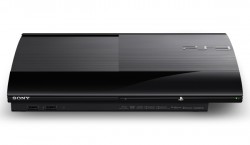
The PS3 Super Slim 12GB is now available in the US for $199, but it’s not as good value as it sounds
For example, you can get a PS3 500GB console with the eagerly awaited GTA V game in a bundle for just under $70 more. To me, 488GB of more storage plus GTA V is worth the extra $70. Second, PlayStation Plus has become increasingly better value due to all the free games that Sony are giving away. The “Instant Game Collection” feature means you get a monthly collection of free games as part of your PS Plus subscription as digital downloads, and 12GB is just not going to cut it. And with the OS taking up space, 12GB end up being something like 8GB, which is just barely enough for one disc based game install, and not enough for most digital downloads.
And yes, you can install your hard-drive, but work in the price of a cheap laptop drive plus your time and effort, and it’s probably not worth doing, especially not compared to the GTA V bundle currently available (assuming you want the game. And you should).
Now, if the 12GB console gets its own game bundle, and drops in price by another $50, then we may be onto a winner. I wouldn’t rule something like this out for the 2013 holiday sales period.
And that’s it for the week. Hope it wasn’t too short, or too long, or too boring, or too many ‘toos’. See you next week.

